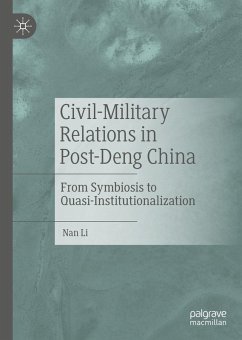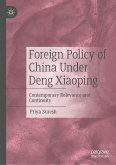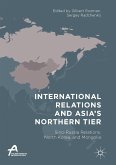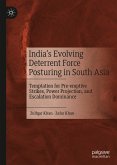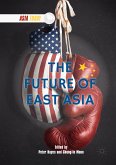This book demonstrates that civil-military relations have evolved away from symbiosis to quasi-institutionalization in post-Deng Xiaoping China.
As the People's Liberation Army (PLA) is a Leninist party-army, it is commonly assumed that the relationship between the Chinese Communist Party (CCP) and the PLA is symbiotic and institutional boundaries based on a clear functional division of labor are absent between the two. This symbiosis suggests that the primary role of the PLA is in China's domestic politics; it is to participate in intra-CCP leadership power struggle and in defending the CCP regime against popular rebellions from within Chinese society.
By analyzing major changes in the functions of the PLA political commissar system, the extent of the PLA involvement in the power struggle of the CCP leadership, and the circulation of elites across civil-military institutional boundaries, this book offers a new theoretical explanation of civil-military relations in China. It also discusses the implications of the findings for China's domestic politics and foreign policy.
Nan Li is Visiting Senior Research Fellow at East Asian Institute, National University of Singapore. He has published extensively on Chinese security and military policy and China's maritime development. He was a professor at the U.S. Naval War College and received a PhD in political science from the Johns Hopkins University.
Dieser Download kann aus rechtlichen Gründen nur mit Rechnungsadresse in A, B, BG, CY, CZ, D, DK, EW, E, FIN, F, GR, HR, H, IRL, I, LT, L, LR, M, NL, PL, P, R, S, SLO, SK ausgeliefert werden.

